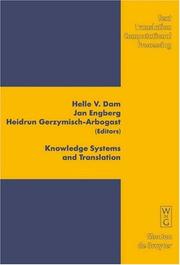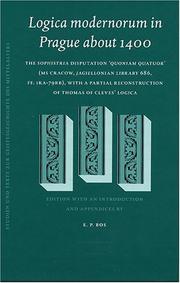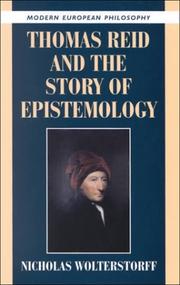| Listing 1 - 10 of 15 | << page >> |
Sort by
|

ISBN: 3110182971 3110924307 9783110182972 9783110924305 Year: 2005 Volume: 7 Publisher: Berlin Mouton de Gruyter
Abstract | Keywords | Export | Availability | Bookmark
 Loading...
Loading...Choose an application
- Reference Manager
- EndNote
- RefWorks (Direct export to RefWorks)
It is generally agreed that knowledge plays an important role in translation and interpreting and that it should therefore be of central concern to translation and interpreting studies. However, there is no general agreement about what is actually meant by the term 'knowledge' in this context, nor about in exactly what ways it is relevant. Also, present-day translation and interpreting studies offer only a limited amount of research specifically dedicated to knowledge systematization and other knowledge-related issues. This book is one of the first to systematically and exclusively address the question of knowledge in translation and interpreting. It is a collection of papers by leading scholars both from the field of translation and interpreting and from adjacent fields where knowledge also plays an important role, such as linguistics and computer science. The experts present a wide variety of conceptions of knowledge and a number of different approaches to the study of knowledge in translation and interpreting: some of them draw on concepts such as scenes and frames, mental spaces and semantic networks, some discuss knowledge systems from an ontological point of view, and some present more general concepts of knowledge in translation and interpreting. Along the same lines, some of the contributors deal mainly with theoretical and conceptual aspects, others focus on methodological issues, and again others report on empirical studies. What brings them together, however, is their common focus on the interface between knowledge and translation/interpreting, and their main achievement is that, by joining forces, they manage to present to their readers a state-of-the-art report which offers both a clearer delimitation of the concept of knowledge and a better understanding of its role in translation and interpreting.
Mathematical linguistics --- Translation science --- Information systems --- Translating and interpreting --- Knowledge, Theory of --- Traduction et interprétation --- Théorie de la connaissance --- Congresses. --- Congresses --- Congrès --- #KVHA:Vertaalwetenschap --- Automatisch vertalen --- Tolken en kennistheorie --- Vertalen en cognitie --- Vertalen en cultuur --- Vertalen en filosofie --- Vertalen en kennistheorie --- Automatisch vertalen. --- Tolken en kennistheorie. --- Vertalen en cognitie. --- Vertalen en cultuur. --- Vertalen en filosofie. --- Vertalen en kennistheorie. --- Traduction et interprétation --- Théorie de la connaissance --- Congrès --- Translating and interpreting - Congresses --- Knowledge, Theory of - Congresses --- Translation.
Periodical
ISSN: 17468361 00122017
Abstract | Keywords | Export | Availability | Bookmark
 Loading...
Loading...Choose an application
- Reference Manager
- EndNote
- RefWorks (Direct export to RefWorks)
dialectica publishes first-rate articles predominantly in theoretical and systematic philosophy. It is edited in Switzerland and has a focus on analytical philosophy undertaken on the continent. Continuing the work of its founding members, dialectica seeks a better understanding of the mutual support between science and philosophy that both disciplines need and enjoy in their common search for understanding.
Psychology --- Dialectic --- Psychologie --- Dialectique --- Kennistheorie. --- Polarity --- Polarity (Philosophy) --- Dialectic. --- Psychology. --- Behavioral sciences --- Mental philosophy --- Mind --- Science, Mental --- Human biology --- Philosophy --- Soul --- Mental health --- Industries
Book
ISBN: 9789004166332 9004166335 9786612398346 1282398342 9047443241 9789047443247 Year: 2008 Volume: 98 Publisher: Leiden Boston Brill
Abstract | Keywords | Export | Availability | Bookmark
 Loading...
Loading...Choose an application
- Reference Manager
- EndNote
- RefWorks (Direct export to RefWorks)
In modern linguistics one usually differentiates between content words or syncategorematic words and function words or categorematic words. But most people do not know that this differentiation does not have its roots in modern times. In fact it is one of the achievements of the Middle Ages. The tendency to classify words according their function in a sentence and as operators began to develop around the middle of the 12th century. Its probably most productive form was reached in tracts on syncategorematic words, which multiplied in the 13th century and constituted alongside the doctrine of the properties of terms the second part of logic proper in the Middle Ages. The arguably most important tract of this kind is the Syncategoremata of the English logician William of Sherwood. This book is mainly a commentary on this treatise. Furthermore it gives a survey of the history of syncategorematic words and of its study.
Logic. --- Logic, Medieval. --- 1 GUILELMUS DE SHYRESWOOD --- 16 <09> --- Medieval logic --- Argumentation --- Deduction (Logic) --- Deductive logic --- Dialectic (Logic) --- Logic, Deductive --- Intellect --- Philosophy --- Psychology --- Science --- Reasoning --- Thought and thinking --- 16 <09> Logica. Kennistheorie. Logische methodiek. Wetenschapsfilosofie--Geschiedenis van ... --- Logica. Kennistheorie. Logische methodiek. Wetenschapsfilosofie--Geschiedenis van ... --- 1 GUILELMUS DE SHYRESWOOD Filosofie. Psychologie--GUILELMUS DE SHYRESWOOD --- Filosofie. Psychologie--GUILELMUS DE SHYRESWOOD --- Methodology --- Shirwood, William, --- Logique médiévale --- Logic --- Logic, Medieval --- Logica. Kennistheorie. Logische methodiek. Wetenschapsfilosofie--Geschiedenis van .. --- Syncategorematische termen. --- William, --- Logica. Kennistheorie. Logische methodiek. Wetenschapsfilosofie--Geschiedenis van

ISBN: 9004140093 9786610859764 1429427922 9047406044 1280859768 1433705788 9781429427920 9789004140097 Year: 2004 Volume: 82 Publisher: Leiden Boston Brill
Abstract | Keywords | Export | Availability | Bookmark
 Loading...
Loading...Choose an application
- Reference Manager
- EndNote
- RefWorks (Direct export to RefWorks)
This anonymous source publication of a university discussion held in Prague about 1400 provides us with new information about medieval semantics after Peter of Spain and Richard Billingham. The edition is the basis of a partial reconstruction of Thomas of Cleves' Logica.
Logic [Medieval ] --- Logica [Middeleeuwse ] --- Logique médiévale --- Medieval logic --- Middeleeuwse logica --- 16 <09> --- 16 <09> Logica. Kennistheorie. Logische methodiek. Wetenschapsfilosofie--Geschiedenis van ... --- Logica. Kennistheorie. Logische methodiek. Wetenschapsfilosofie--Geschiedenis van ... --- Logic, Medieval --- Language and logic --- Semantics (Philosophy) --- Logique médiévale --- Langage et logique --- Sémantique (Philosophie) --- Early works to 1800 --- Ouvrages avant 1800 --- Early works to 1800. --- Intension (Philosophy) --- Logical semantics --- Semantics (Logic) --- Semeiotics --- Significs --- Syntactics --- Unified science --- Language and languages --- Logic, Symbolic and mathematical --- Logical positivism --- Meaning (Psychology) --- Philosophy, Modern --- Semiotics --- Signs and symbols --- Symbolism --- Analysis (Philosophy) --- Definition (Philosophy) --- Linguistics and logic --- Logic in language --- Logic --- Semantics --- Logica. Kennistheorie. Logische methodiek. Wetenschapsfilosofie--Geschiedenis van .. --- Philosophy --- Logic, Medieval. --- Logica. Kennistheorie. Logische methodiek. Wetenschapsfilosofie--Geschiedenis van . --- Language and logic. --- Logica. Kennistheorie. Logische methodiek. Wetenschapsfilosofie--Geschiedenis van
Book
ISBN: 0253055830 Year: 1990 Publisher: Indiana University Press
Abstract | Keywords | Export | Availability | Bookmark
 Loading...
Loading...Choose an application
- Reference Manager
- EndNote
- RefWorks (Direct export to RefWorks)
Reinhardt Grossmann holds that a realistic ontology in regard to perceptual, physical, and mathematical objects can be combined with an empiricistic theory of knowledge. In the first part of the book he shows that the traditional distinction between primary and secondary qualities leads to idealism, while the common Cartesian conception of knowledge by way of ideas leads to skepticism. In an effort to avoid these twin scourges of modem philosophy, the author argues for the existence of ordinary perceptual objects and explains how we know these objects directly through simple acts of perception. The second part of the book is concerned with the way in which we know what is in our minds. Grossmann maintains that this kind of knowledge is just as fallible as perception. In the third part the author concludes that logic, arithmetic, and set theory concern matters of fact and that we discover these facts through empirical knowledge.
08.32 epistemology. --- Kennistheorie. --- Realism. --- Knowledge, Theory of. --- Empiricism. --- Realismo. --- Empirismo. --- Realisme. --- Empirisme. --- Theorie de la connaissance. --- Epistemology --- Theory of knowledge --- Philosophy --- Psychology --- Experience --- Knowledge, Theory of --- Rationalism --- Empiricism --- Universals (Philosophy) --- Conceptualism --- Dualism --- Idealism --- Materialism --- Nominalism --- Positivism
Book
ISBN: 9025403956 Year: 1993 Publisher: Amsterdam Contact
Abstract | Keywords | Export | Availability | Bookmark
 Loading...
Loading...Choose an application
- Reference Manager
- EndNote
- RefWorks (Direct export to RefWorks)
Multidisciplinary collective works --- 16 --- #gsdbf --- #A9306A --- filosofie --- #GGSB: Schepping --- 16 Logica. Kennistheorie. Logische methodiek. Wetenschapsfilosofie --- Logica. Kennistheorie. Logische methodiek. Wetenschapsfilosofie --- Oliver Sacks, neuroloog en psychiater. Stephen Jay Gould, paleontoloog. --- Stephen Toulmin, wetenschapsfilosoof. --- Daniel C. Dennett, filosoof. --- Rupert Sheldrake, biochemicus en celbioloog. --- Freeman Dyson, natuurkundige. --- Interviews ; over wetenschap en filosofie ; door W. Kaizer --- Filosofie ; Cultuurfilosofie --- 130.2 --- Oliver Sacks, neuroloog en psychiater. Stephen Jay Gould, paleontoloog --- Stephen Toulmin, wetenschapsfilosoof --- Daniel C. Dennett, filosoof --- Rupert Sheldrake, biochemicus en celbioloog --- Freeman Dyson, natuurkundige --- CDL --- Schepping

ISBN: 0521790131 0521539307 1107129427 0511177992 0511073984 0511073704 0511323654 0511613849 1280418060 1139146637 0511073887 9780511073984 9780511073885 9780511073700 9780511613845 9780521790130 9781107129429 9781280418068 9781139146630 9780511177996 9780511323652 Year: 2001 Volume: *25 Publisher: Cambridge Cambridge University press
Abstract | Keywords | Export | Availability | Bookmark
 Loading...
Loading...Choose an application
- Reference Manager
- EndNote
- RefWorks (Direct export to RefWorks)
The two great philosophical figures at the culminating point of the Enlightenment are Thomas Reid in Scotland and Immanuel Kant in Germany. Reid was by far the most influential across Europe and the United States well into the nineteenth century. Since that time his fame and influence have been eclipsed by his German contemporary. This important book by one of today's leading philosophers of knowledge and religion will do much to reestablish the significance of Reid for philosophy today. Nicholas Wolterstorff has produced the first systematic account of Reid's epistemology. Relating Reid's philosophy to present-day epistemological discussions the author demonstrates how they are at once remarkably timely, relevant, and provocative. No other book both uncovers the deep pattern of Reid's thought and relates it to contemporary philosophical debate. This book should be read by historians of philosophy as well as all philosophers concerned with epistemology and the philosophy of mind.
Connaissance [Théorie de la ] --- Epistemologie --- Epistemology --- Epistémologie --- Kenleer --- Kennisleer --- Kennistheorie --- Kentheorie --- Knowledge [Theory of ] --- Theorie of knowledge --- Theorievorming --- Théorie de la connaissance --- Knowledge, Theory of --- Theory of knowledge --- Philosophy --- Psychology --- Reid, Thomas, --- Jui-te, Tʻo-ma-ssu, --- Reid, Thomas --- Arts and Humanities --- Knowledge, Theory of.
Book
ISBN: 9789024436170 9024436176 Year: 2021 Publisher: Amsterdam Boom
Abstract | Keywords | Export | Availability | Bookmark
 Loading...
Loading...Choose an application
- Reference Manager
- EndNote
- RefWorks (Direct export to RefWorks)
De ggz verandert in hoog tempo. Dankzij de versterkte basis-ggz in Nederland en de eerstelijnspsychologie in Vlaanderen is de drempel voor psychische hulp aanzienlijk verlaagd. Deze grotere instroom vraagt van de ggz een andere benadering: kortere behandelingen met nadruk op het versterken van de zelfredzaamheid van de patiënt. Het KOP-model sluit aan bij deze ontwikkeling. De reacties op de eerste en tweede editie bewijzen dat het KOP-model voldoet aan de behoeften van professionals. Deze derde editie is helemaal up-to-date, met een handig stroomdiagram en de laatste ontwikkelingen op bijvoorbeeld het gebied van e-health. Het KOP-model is een praktisch werkmodel waarmee de patiënt inzicht krijgt in de oorzaken van de klachten, wat er aan gedaan kan worden en vooral wat hij of zij er zélf aan kan doen. Uit onderzoek blijkt dat dit model uitstekend geschikt is voor de behandeling van patiënten met milde tot matige psychische klachten. Het boek bestaat uit drie delen. Het eerste deel beschrijft het theoretische fundament van het werkmodel. Diverse invalshoeken, zoals het belang van een generalistische werkhouding en de rol van e-health worden besproken en geïllustreerd met casussen. In het tweede deel komt de toepassing van het KOP-model bij verschillende doelgroepen aan de orde, zoals kinderen en jongeren, allochtonen en mensen met chronisch psychiatrische problematiek. Het laatste deel gaat in op randvoorwaarden die van belang zijn bij het uitvoeren van behandelingen in de basis-ggz.https://www.boompsychologie.nl/alle-uitgaven/100-9693_Handboek-KOP-model-herziening?utm_source=Webpower&utm_medium=email&utm_content=button-kop-model%20button&utm_campaign=BPP%20mailing%20januari%202021%20-%202
gevoelens --- 159.94 --- ontwikkelingspsychologie --- gehechtheid --- gedrag --- relaties --- Ontwikkelingspsychologie --- Mentalisatie --- Hechting --- Opvoeding --- Kennistheorie --- Veerkracht --- Kwetsbaarheid --- Communicatieve vaardigheden --- Relaties --- Empathie --- Verbindende communicatie --- Persoonlijkheidsontwikkeling --- Emoties --- Denken --- Psychology --- intermenselijke relaties --- relatieproblemen --- hechtingsstoornissen --- puberteit --- hechting (psychologie) --- relatietherapie --- persoonlijkheidsontwikkeling --- Hechting (psychologie) --- Veerkracht (fysica) --- Relatie --- Emotie --- Onderwijs --- Veerkracht (weerbaarheid) --- Kennisleer --- Mentalisatie. --- Psychotherapie. --- Relaties.
Book
ISBN: 1283609665 9786613922113 0191654930 9780191654930 9781283609661 9780199608577 0199608571 0191654949 Year: 2012 Publisher: Oxford : Oxford University Press,
Abstract | Keywords | Export | Availability | Bookmark
 Loading...
Loading...Choose an application
- Reference Manager
- EndNote
- RefWorks (Direct export to RefWorks)
David Chalmers develops a picture of reality on which all truths can be derived from a limited class of basic truths. The picture is inspired by Rudolf Carnap's construction of the world in Der Logische Aufbau Der Welt. Carnap's Aufbau is often seen as a noble failure, but Chalmers argues that a version of the project can succeed. With the right basic elements and the right derivation relation, we can indeed construct the world. The focal point of Chalmers'project is scrutability: the thesis that ideal reasoning from a limited class of basic truths yields all truths about the world. Chalmers f
Knowledge, Theory of. --- Logical positivism. --- Logical empiricism --- Neo-empiricism --- Neo-positivism --- Physicalism --- Positivism, Logical --- Unity of science movement --- Language and logic --- Logic --- Meaning (Psychology) --- Positivism --- Reductionism --- Relationism --- Science --- Analysis (Philosophy) --- Verification (Empiricism) --- Vienna circle --- Epistemology --- Theory of knowledge --- Philosophy --- Psychology --- Knowledge, Theory of --- Logical positivism --- Théorie de la connaissance. --- Positivisme logique. --- Kennistheorie. --- Logisk positivism. --- PHILOSOPHY --- Epistemology. --- Théorie de la connaissance.
Book
ISBN: 1421434768 1421434784 1421434776 Year: 2019 Publisher: Johns Hopkins University Press
Abstract | Keywords | Export | Availability | Bookmark
 Loading...
Loading...Choose an application
- Reference Manager
- EndNote
- RefWorks (Direct export to RefWorks)
Are there two kinds of problems - the scientific and the philosophic - each requiring different methods for solution? Or are there, rather, two different ways of approaching a problem, each yielding a different answer according to the method used? Biomedical researcher Sir Harold Himsworth urges scientists not to shy away from using scientific methods to grapple with problems traditionally accepted as belonging to the province of philosophy. The difference between science and philosophy lies not in the problems to which they are directed, Himsworth argues, but rather in the methods they use for solving them. To the scientist, a proposition is something to be investigated; to the philosopher, something to be accepted as a basis for thought. Since the development of the scientific method, substantial progress has been made toward mastering problems in the natural environment. If we are ever to attain a degree of control over problems that derive from human activities, Himsworth claims that we only succeed by approaching them in a comparably objective way.
Wissenschaft. --- Philosophie. --- Wetenschap. --- Denkwijze. --- Probleemoplossing. --- Kennistheorie. --- Wissenschaft --- Philosophie --- Erkenntnistheorie --- Science --- Problem solving. --- Knowledge, Theory of. --- Knowledge. --- Philosophy. --- Methodology. --- methods. --- Scientific knowledge - Philosophical perspectives --- Methodology --- Psychology --- Decision making --- Executive functions (Neuropsychology) --- Natural science --- Natural sciences --- Science of science --- Sciences --- Epistemology --- Theory of knowledge --- Philosophy --- Scientific method --- Logic, Symbolic and mathematical --- Normal science --- Philosophy of science
| Listing 1 - 10 of 15 | << page >> |
Sort by
|

 Search
Search Feedback
Feedback About UniCat
About UniCat  Help
Help News
News